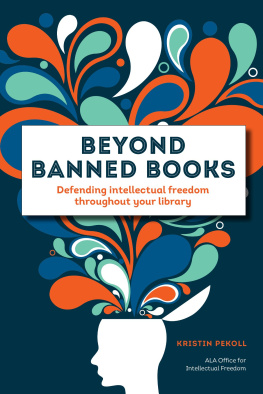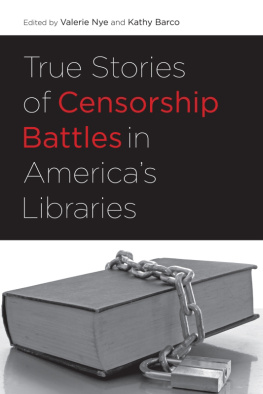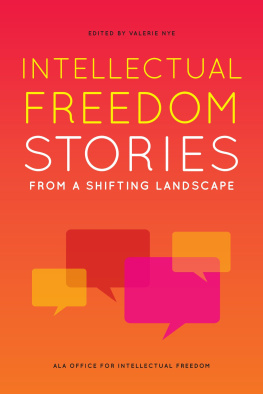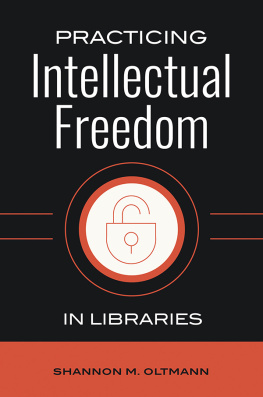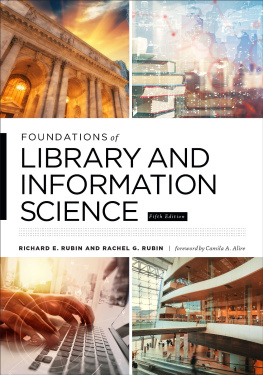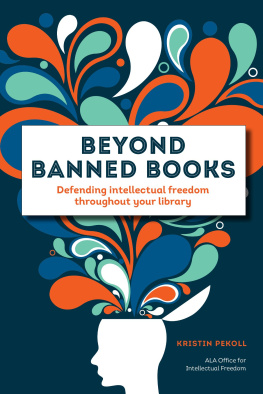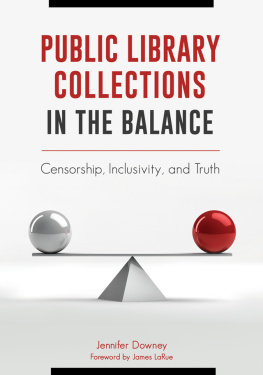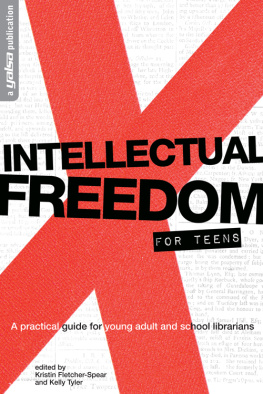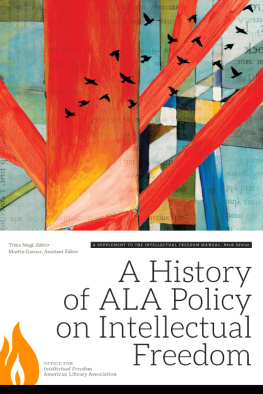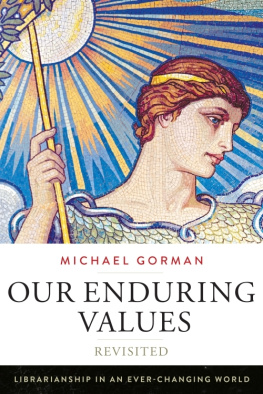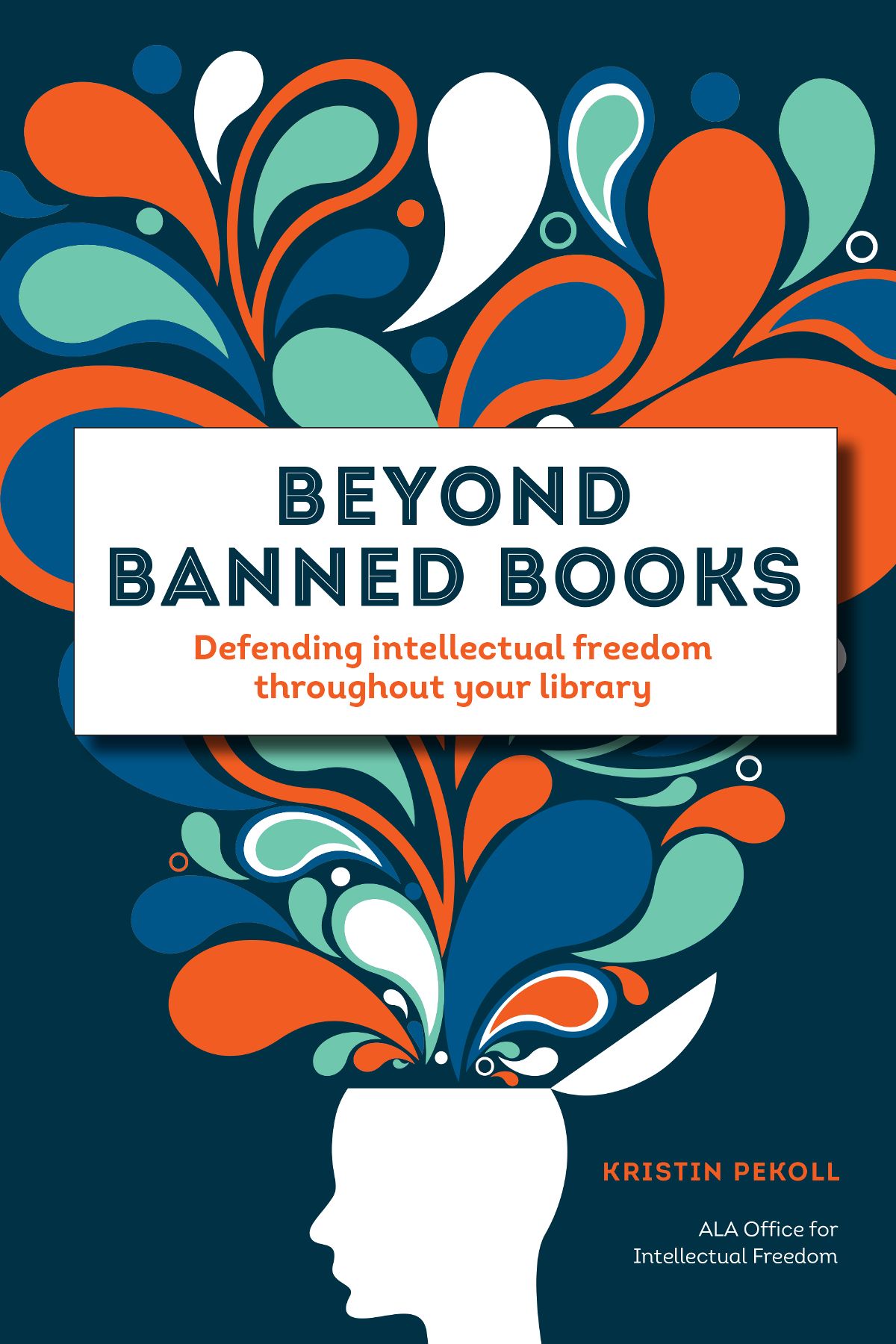
ALA Editions purchases fund advocacy, awareness, and accreditation programs for library professionals worldwide.
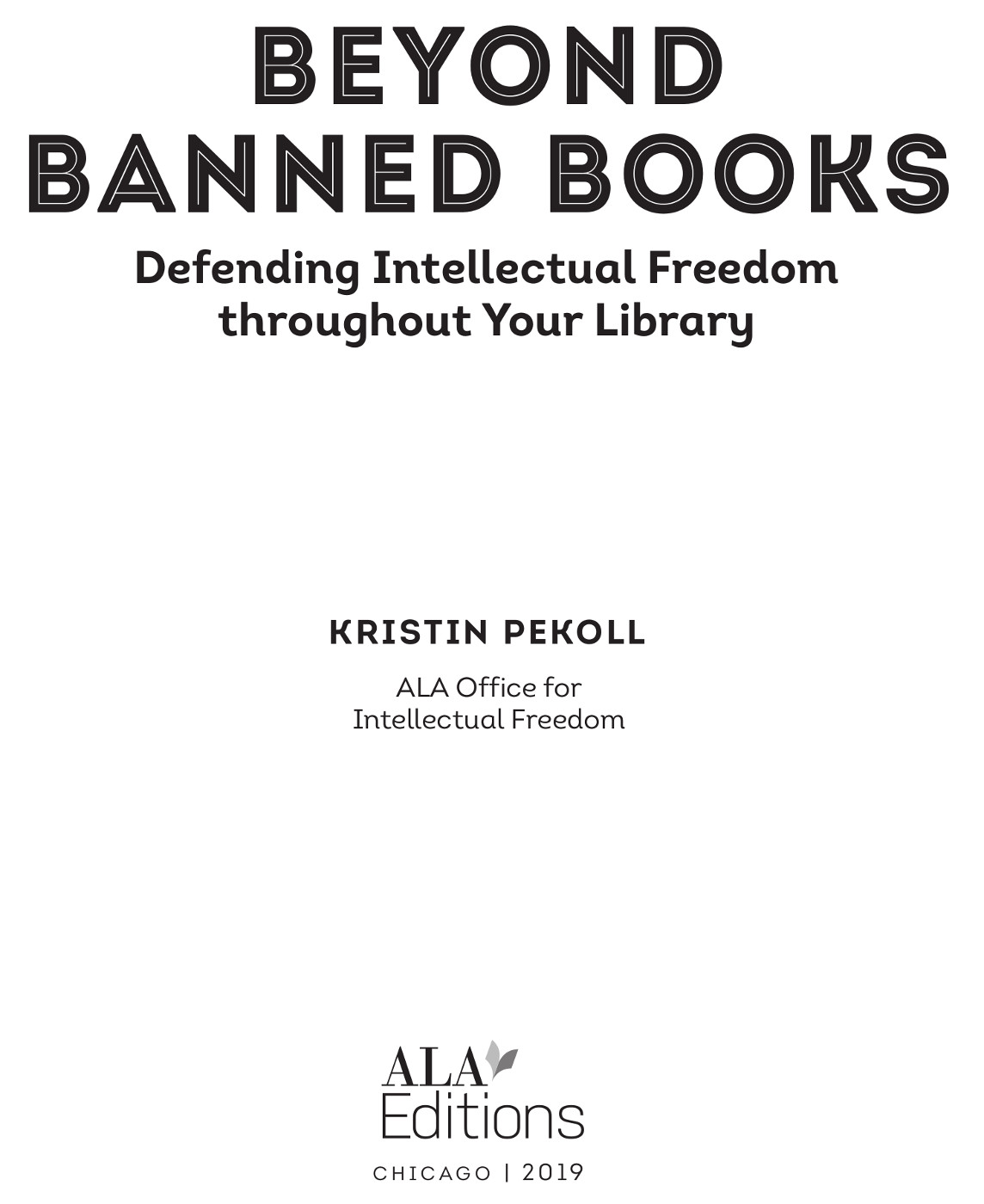
Kristin Pekoll is assistant director of the American Library Associations Office for Intellectual Freedom in Chicago. For twelve years she was the youth librarian at the West Bend Community Memorial Library in Wisconsin. Her primary focus is supporting librarians who are dealing with censorship issues, and she also works to raise awareness of the value of intellectual freedom within the library profession and among the public.
2019 by the American Library Association
Extensive effort has gone into ensuring the reliability of the information in this book; however, the publisher makes no warranty, express or implied, with respect to the material contained herein.
ISBNs
978-0-8389-1901-9 (paper)
978-0-8389-1890-6 (PDF)
978-0-8389-1889-0 (ePub)
978-0-8389-1891-3 (Kindle)
Library of Congress Cataloging-in-Publication Data
Names: Pekoll, Kristin, author. | American Library Association. Office for Intellectual Freedom.
Title: Beyond banned books : defending intellectual freedom throughout your library / Kristin Pekoll.
Description: Chicago : ALA Editions, 2019. | Includes index. | Includes bibliographical references and .
Identifiers: LCCN 2018059726 | ISBN 9780838919019 (pbk. : alk. paper) | ISBN 9780838918890 (epub) | ISBN 9780838918906 (pdf) | ISBN 9780838918913 (kindle)
Subjects: LCSH: LibrariesCensorshipUnited States. | LibrariesCensorshipUnited StatesCase studies. | Intellectual freedomUnited States. | LibrariansProfessional ethicsUnited States.
Classification: LCC Z711.4 .P38 2019 | DDC 025.2/13dc23
LC record available at https://lccn.loc.gov/2018059726
Cover image mrhighsky/Adobe Stock
CONTENTS
Martin Garnar
Dean of the Kraemer Family Library
University of Colorado Colorado Springs
W hen we talk about censorship with people who dont work in libraries, its pretty clear that Banned Books Week has turned into one of our professions most successful marketing campaigns. People will stop me and talk about their favorite banned books, and how it made them feel like a rebel to read something that bothered someone else. At my academic library, students are incensed each year by our display of challenged books, since they cannot fathom why anyone would want to take a book off the shelf just because they dont agree with it.
Just dont read it if you dont like it!
How can people be so ignorant?
No one should ever ban a book.
Banned Books Week itself can become the target of complaints. At my previous institution, a faculty member complained about our librarys Banned Books Week display, contending that we were misleading our users by suggesting that all of the books in the display had been banned, when some had merely been challenged. In response, a staff member changed the sign from Banned Books to Controversial Titles without consulting the displays creators. Since no books were removed from the display and the display was not taken down, maybe you think its a stretch to call this censorship, but I would argue that altering content because it makes someone uncomfortable or angry is leading you down that road.
When the conversation moves beyond books, the same people who will defend Harry Potter or their favorite graphic novel to their dying day dont seem to have a problem when a school district removes students access to an entire suite of databases because of spurious complaints about pornography by one set of parents.
There are some limits to what we should allow in schools.
Its a shame, but they can just get the information from somewhere else.
These are quotes from a conversation I had about the wholesale removal of one vendors databases from over 100 schools in my home state of Colorado. Who was I talking with? Someone who works with libraries.
Censorship is no longer just for books, nor has it been for quite a while. In these contentious times, free and unfettered access to information is more important than ever, and this book is coming out when we are at a professional crossroads: how to support intellectual freedom and equity, diversity, and inclusion all at the same time. The difficult process of updating the American Library Associations policy guidelines for library meeting rooms has highlighted the divide between those who feel there must be appropriate limits on who can use them (i.e., no Nazis) and those who see any limits as a slippery slope (i.e., everyone means everyone, even if they ultimately mean us harm). While this book cant bridge a decades-old divide, it does give us plenty to consider as Kristin Pekoll examines the many ways that access to informationespecially of underrepresented perspectivesis being restricted beyond the banning of books.
Youre Going to Hell!
N ot you; they were talking to me. That was the message left for me on a voicemail ten years ago. Librarians rarely choose their career path with a desire to occupy the spotlight or be in the center of a controversy. I know I didnt. I knew at the age of fourteen that I wanted to be a librarian and that I believed in this profession and its values. I wanted to work with smart people, kind people, open-minded people. I wanted to work with young people and steer them towards a bigger, brighter, bolder future. Im not a shy person or a conservative person, but I never imagined that I would become known (falsely) as a porn purveyor with a gay agenda, or that I would be told I was going to hell and I shouldnt be around children. As distressing as these opinions were while I was in the midst of the situation, my values of intellectual freedom never wavered, which only reinforced the certainty that I had chosen my profession correctly.
In February 2009, I was the young adult librarian at the West Bend Community Memorial Library in Wisconsin. I had started working there while finishing my MLIS degree at the University of WisconsinMilwaukee in 2003. I loved working with teen volunteers and ordering young adult (YA) materials and growing as a young librarian. Posting booklists on library websites was a newer thing at the time, and I had just taken over the management of the website. I had no idea that one booklist would lead to a book challenge case targeting over eighty LGBTQ books; those five months defined my career, and they are the reason why I work for the Office for Intellectual Freedom and the reason I wrote this book.
I close my eyes today and I can instantly remember sitting in my car in the library parking lot sobbing. The pounding thought in my head was I just want this to be over again and again and again. I remember the fear every time I saw I had a new voicemail message. I remember sitting across from the parents who were so upset about these LGBTQ books, while I was armed with as many sources as I could get to defend these books and the teens who read them. I started shaking during that meeting as they read out loud a scene from The Perks of Being a Wallflower by Stephen Chbosky. All my defenses were torn to shreds, when a parent glared at me and demanded to know if I was a mother. She said that I couldnt be a mother because no mother would promote this pornography. It took everything I had not to protectively cover the baby inside me.
I would call my mom. I would talk to my colleagues. I would vent to my husband. But it wasnt until I spoke with Angela Maycock at the ALAs Office for Intellectual Freedom (OIF) that I felt someone understood the stress of the situation and completely validated my struggles. She made me laugh when things were anything but funny, and she reminded me how important these books were, especially in a community that claimed that we dont have any gay kids here. Im lucky and thankful to still be friends with Angela.
Next page
